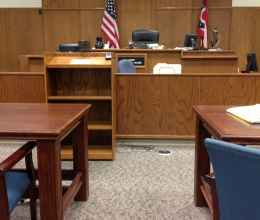Massachusetts needs to require licensing of police officers
A recent story by PBS Frontline addressed some of the issues surrounding peace officer standards and training.
Laws that determine who has the right to make arrests and use deadly force are a patchwork of regulations nationwide. That means that troubled officers can continue to work in law enforcement, moving from city to town or even to neighboring states, with few formal ways to track or check their behavior. ...
Massachusetts is one of six states — along with New York, New Jersey, Rhode Island, California and Hawaii — that lacks the authority to revoke police officers’ licenses to serve, a process known as decertification. A pair of state representatives, Democrat Russell Holmes and Republican David Vieira, have introduced a measure to establish a committee tasked with drafting a bill that would set statewide standards to determine when an officer can carry a badge — and specify how they might lose it. It would also set continuing training standards for officers, and allocate more funding for the coursework.
Frontline spoke to our Racial Justice Project director, Rahsaan Hall:
"Advocates argue that decertification is essential to building community trust in law enforcement. Black and Latino communities experience a disproportionate amount of police contact but are also less likely to report officer misconduct, either for fear of retaliation or that they won’t be believed, said Rahsaan Hall, head of the racial justice project at the American Civil Liberties Union in Massachusetts. That makes it easier for problem officers to go unnoticed by their departments."
Read the full article, How States Are Moving to Police Bad Cops, and visit our page on police licensure to learn more.
Related content

Final settlement reached in lawsuit against Hampden County Sheriff...
May 27, 2025APHA v. NIH
April 24, 2025
Federal Court Grants Preliminary Injunction Against Department of...
April 24, 2025Researchers Challenge NIH’s Politically Driven Grant Cancellations
April 2, 2025ACLU and NEA Sue U.S. Department of Education Over Unlawful Attack...
March 5, 2025
ACLU of Massachusetts statement on US Department of Justice report...
December 9, 2024
ACLU of Massachusetts statement on recommendations to reinforce...
October 16, 2024